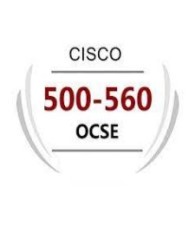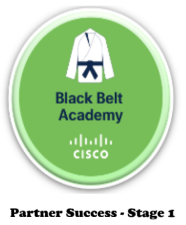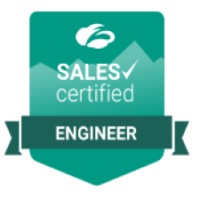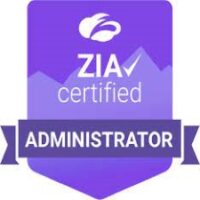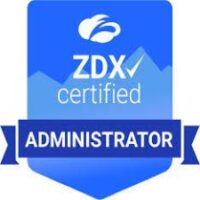Reducing costs has skyrocketed to the top of the priority list for organizations everywhere. For the last few years, economic uncertainty has been fueled by COVID lockdowns, supply chain issues, inflation, and more. This has inevitably placed immense financial pressure on companies of all sizes as they strive to brace for a potential recession. As a result, their security and networking teams are being tasked to do more with fewer resources–but that is a tall task when relying upon perimeter-based architectures.
Throughout this blog series, we are explaining how organizations can save money on both networking and security by leveraging a zero trust architecture. Each of the posts includes a video that describes one of the ways that companies can cut costs with zero trust. The first installment in the series focused on technology cost optimization through simplifying infrastructure and retiring appliances. The second revolved around increasing operational efficiency through point product consolidation and hardware maintenance elimination. Blog number three detailed how organizations can accelerate M&A time-to-value and decrease the costs of IT integration.
This blog post discusses:
The rising costs of data breaches
Cybercriminals are constantly looking for new ways to breach enterprise defenses. Unfortunately, perimeter-based architectures (sprawling hub-and-spoke networks defended by castle-and-moat security models) only serve to increase risk in a modern world with cloud apps, remote workers, highly sophisticated cyberthreats, and more. As a result, organizations are more likely to experience data breaches and their corresponding costs, from legal fees and compliance fines to brand damage and lost business opportunities.
In other words, to save money on security, organizations need to retire yesterday’s architectures and improve their security postures.
Zero trust architecture
Zero trust is the panacea to these problems. As a fundamentally different architecture, it eliminates the potentially fatal flaws of hub-and-spoke networks and castle-and-moat security models. Organizations can reduce risk, stop cyberthreats, and avoid the financial fallout of data breaches by embracing a zero trust architecture. Watch the video below to hear all about how this works.
Want to see concrete examples of organizations that choose Zscaler for a zero trust architecture and reap the financial benefits? Download our ebook. Want to hear more in-depth information about the various ways that Zscaler can save money for customers? Watch our on-demand webinar,
The next post in this blog series will dive into the way that poor user experiences disrupt productivity, wasting employees’ time and the enterprise’s money.
Reducing costs has skyrocketed to the top of the priority list for organizations everywhere. For the last few years, economic uncertainty has been fueled by COVID lockdowns, supply chain issues, inflation, and more. This has inevitably placed immense financial pressure on companies of all sizes as they strive to brace for a potential recession. As a result, their security and networking teams are being tasked to do more with fewer resources–but that is a tall task when relying upon perimeter-based architectures.
Throughout this blog series, we are explaining how organizations can save money on both networking and security by leveraging a zero trust architecture. Each of the posts includes a video that describes one of the ways that companies can cut costs with zero trust. The first installment in the series focused on technology cost optimization through simplifying infrastructure and retiring appliances. The second revolved around increasing operational efficiency through point product consolidation and hardware maintenance elimination. Blog number three detailed how organizations can accelerate M&A time-to-value and decrease the costs of IT integration.
This blog post discusses:
The rising costs of data breaches
Cybercriminals are constantly looking for new ways to breach enterprise defenses. Unfortunately, perimeter-based architectures (sprawling hub-and-spoke networks defended by castle-and-moat security models) only serve to increase risk in a modern world with cloud apps, remote workers, highly sophisticated cyberthreats, and more. As a result, organizations are more likely to experience data breaches and their corresponding costs, from legal fees and compliance fines to brand damage and lost business opportunities.
In other words, to save money on security, organizations need to retire yesterday’s architectures and improve their security postures.
Zero trust architecture
Zero trust is the panacea to these problems. As a fundamentally different architecture, it eliminates the potentially fatal flaws of hub-and-spoke networks and castle-and-moat security models. Organizations can reduce risk, stop cyberthreats, and avoid the financial fallout of data breaches by embracing a zero trust architecture. Watch the video below to hear all about how this works.
Want to see concrete examples of organizations that choose Zscaler for a zero trust architecture and reap the financial benefits? Download our ebook. Want to hear more in-depth information about the various ways that Zscaler can save money for customers? Watch our on-demand webinar,
The next post in this blog series will dive into the way that poor user experiences disrupt productivity, wasting employees’ time and the enterprise’s money.
Reducing costs has skyrocketed to the top of the priority list for organizations everywhere. For the last few years, economic uncertainty has been fueled by COVID lockdowns, supply chain issues, inflation, and more. This has inevitably placed immense financial pressure on companies of all sizes as they strive to brace for a potential recession. As a result, their security and networking teams are being tasked to do more with fewer resources–but that is a tall task when relying upon perimeter-based architectures.
Throughout this blog series, we are explaining how organizations can save money on both networking and security by leveraging a zero trust architecture. Each of the posts includes a video that describes one of the ways that companies can cut costs with zero trust. The first installment in the series focused on technology cost optimization through simplifying infrastructure and retiring appliances. The second revolved around increasing operational efficiency through point product consolidation and hardware maintenance elimination. Blog number three detailed how organizations can accelerate M&A time-to-value and decrease the costs of IT integration.
This blog post discusses:
The rising costs of data breaches
Cybercriminals are constantly looking for new ways to breach enterprise defenses. Unfortunately, perimeter-based architectures (sprawling hub-and-spoke networks defended by castle-and-moat security models) only serve to increase risk in a modern world with cloud apps, remote workers, highly sophisticated cyberthreats, and more. As a result, organizations are more likely to experience data breaches and their corresponding costs, from legal fees and compliance fines to brand damage and lost business opportunities.
In other words, to save money on security, organizations need to retire yesterday’s architectures and improve their security postures.
Zero trust architecture
Zero trust is the panacea to these problems. As a fundamentally different architecture, it eliminates the potentially fatal flaws of hub-and-spoke networks and castle-and-moat security models. Organizations can reduce risk, stop cyberthreats, and avoid the financial fallout of data breaches by embracing a zero trust architecture. Watch the video below to hear all about how this works.
Want to see concrete examples of organizations that choose Zscaler for a zero trust architecture and reap the financial benefits? Download our ebook. Want to hear more in-depth information about the various ways that Zscaler can save money for customers? Watch our on-demand webinar,
The next post in this blog series will dive into the way that poor user experiences disrupt productivity, wasting employees’ time and the enterprise’s money.


